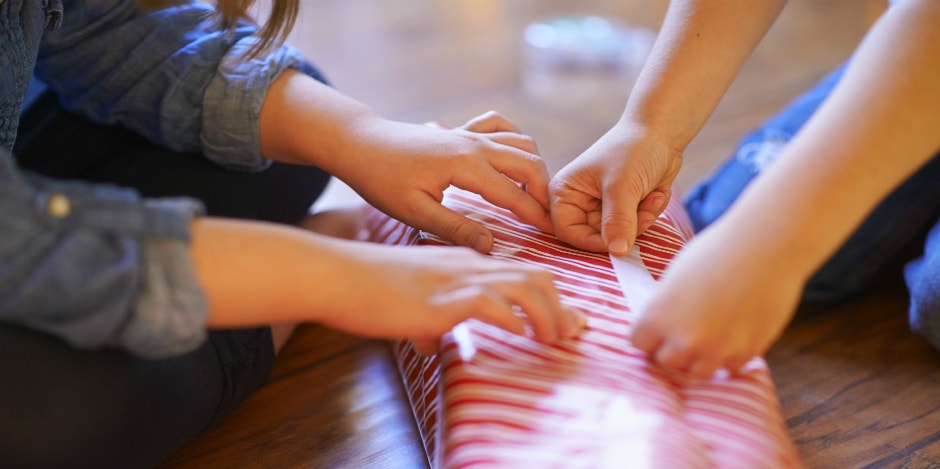Please Let My Child Bring A Gift To Your Birthday Party
Shouldn't children be able to receive gifts from their friends on their own birthday?
 iStock
iStock One of my son's favorite things to do is make cards for the people he loves and to pick out small gifts. He's quick to give away things of his own, and he's known to save his money to buy his sister something small.
Just recently, we were going through some old toys, and he told me that he wanted to wrap up an old truck in some tissue paper and take it to a little boy who was visiting our neighbors.
Instead of discouraging him, I simply grabbed some tissue paper, and together we found a wrinkled-up gift bag in our wrapping paper bin.
He took great care to wrap the truck and place it in the bag. Together, we walked the present to the neighbor's house. The smile on my son's face — the simple pride, evident in his gift-giving — told the story well.
He was just as happy to give the gift as he is to receive one.
I've tried very hard to instill a sense of generosity in my children.
It isn't about expensive or elaborate gifts; it's more about being aware of people around you and realizing that thoughtfulness is a virtue.
We collect rocks we've found on walks to color as presents; we picked out a bracelet together for my mom; we paid for the people behind us in line at the donut store; we collect canned food for the food pantry.
I do my very best to model that being a thoughtful and giving person is what we do; it's who we are.
Recently, most birthday party invitations for my son have specified "No gifts, please." While I do understand the reasoning (the kids have enough already, my kids included!), I do wonder what it's saying about being thoughtful to one another.
Shouldn't children be able to receive gifts from their friends on their own birthday? Small children love their friends and thinking about them by making a gift or picking out one small thing is one way they show this love.
Last month, my son's best friend turned six, and his mom (my friend) told us not to bring any gifts. I know her intentions: She didn't want to stress anyone out or make anyone feel obligated to bring a present.
But when I told my son that we weren't to take any presents for his friend, he got very upset and said that he had been planning a certain present for a while.
He told me how he still really wanted to bring a gift. I hated to curtail my son's excitement for his friend's birthday, and since I'm friends with his friend's mother, I knew she wouldn't mind much if we broke the rule.
My son was elated and bought his friend a small gift with his own money. He colored him a birthday card, and he was so excited about his simple, inexpensive present.
Since we were the only guests at the very small party, this didn't cause any issues with the other kids feeling bad that they didn't show up with a gift.
If there had been other children there, I would have encouraged my son to give his gift in private, at another time.
Because he truly wanted his friend to have a present from him, I really didn't want to discourage his thoughtfulness, and so I didn't.
We have been to other parties where instead of a gift, there's a donation to an animal rescue or food drive, and while I'm in total support of this and think it's a great idea, a small token present for the child is a nice touch.
The act of giving is something I want to instill in my son, and I understand that donations to a charity are also encouraging the act of giving.
Still, I want him to feel like he can give gifts to the people he loves — a rock, a card or even something he bought with his own money — whenever he wants to.
So, please, let my child bring a gift to the birthday party. For that matter, let me bring you an arrangement of greens for the holidays.
The spirit of generosity shouldn't be limited or defined by others, even with good intention.
We want to give you a token of our appreciation and love, and if we didn't, we wouldn't.
In a world filled with so many takers, the giving away of time or small gifts shouldn't be discouraged.
Giving should be spontaneous, heartfelt, and not prescribed.
Kara Lawler believes that mothering is just another way to explore identity, and she writes about the divide that is mothering her own children while still mothering her spirit and the sacred on her blog, Mothering the Divide.

